Digital Poster
Aging: Structure & Microstructure
ISMRM & ISMRT Annual Meeting & Exhibition • 10-15 May 2025 • Honolulu, Hawai'i

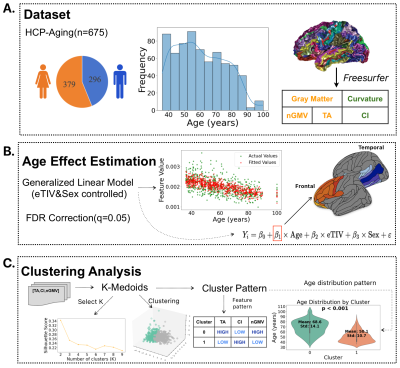 |
Computer Number: 113
3769. Characterizing
Age-related Morphological Changes in Frontal and Temporal Lobes
of the Human Brain Using Multi-feature Clustering Analysis
J. Li, C. Li, J. Zhang, Y. Ge
New York University, New York City, United States
Impact: This multi-feature analysis reveals three
distinct aging patterns in frontal and temporal regions,
providing new insights into synergistic morphological
pattern between frontal and temporal lobes and potential
framework for multi-feature explicable analysis for
age-related neurodegenerative diseases.
|
|
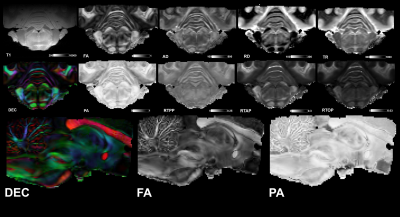 |
Computer Number: 114
3770. Microstructural
changes in locus coeruleus-cortical projections in aged bonnet
macaques are independent of myelin loss
K. McDermott, L. Dieckhaus, C. Comrie, V. Sandrin, E.
Hutchinson, C. Barnes
University of Arizona, Tucson, United States
Impact:
Our study reports subtle changes in the LC and its projections and highlights the benefit of combining multiple quantitative MRI maps. This suggests that incorporating advanced diffusion maps to understand microstructural changes in clinical applications could be beneficial. |
|
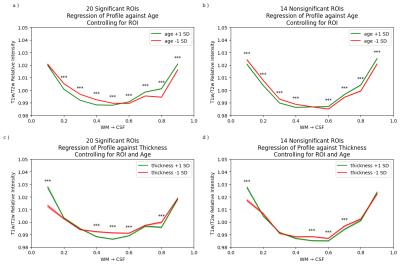 |
Computer Number: 115
3771. Age-Related
Cortical Thinning is Associated with Layer-Specific Changes in
T1w/T2w Profiles
M. Clapp, T. Kim
University of Pittsburgh, Pittsburgh, United States
Impact: Regions with significant age-related cortical
thinning show pronounced T1w/T2w changes, suggesting
myelination’s role in cortical thinning. This enhances
understanding of aging-related brain changes, with myelin
preservation as a potential target for interventions to
mitigate age-related cognitive decline.
|
|
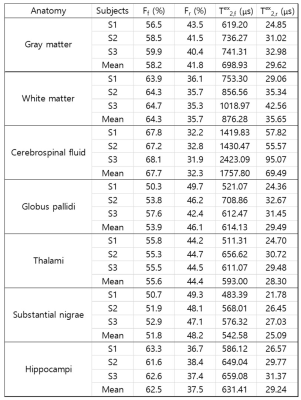 |
Computer Number: 116
3772. Investigation
of multiparametric exchange protons using CEST and Z-spectrum
analysis proton (ZAP) in human brain
H. N. Jung, V. Malis, M. McDonald, M. Miyazaki
Korea Univeristy Guro Hospital, Seoul, Korea, Republic of
Impact: Observing macromolecular exchange protons by
CEST and ZAP may provide the presence of characteristic
irregular tissues that are not possible to observe in
regular MRI. This suggests a potential biomarker related to
age-associated changes in the brain.
|
|
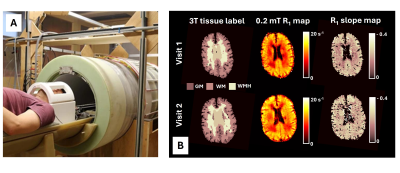 |
Computer Number: 117
3773. R1
dispersion mapping of cerebral small vessel disease using
Field-Cycling Imaging
N. Senn, V. Mallikourti, P. J. Ross, R. Ayde, L. Broche, G.
Waiter, M. J. MacLeod
University of Aberdeen, Aberdeen, United Kingdom
Impact: This work is a first step towards investigating
whether quantitative measurements of low-field R1 dispersion
have utility for assessing progression of cerebral small
vessel disease.
|
|
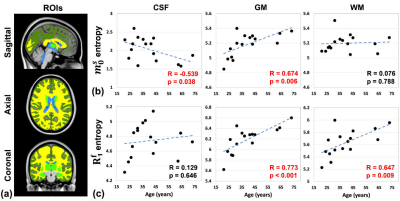 |
Computer Number: 118
3774. Exploring
Brain Entropy Across the Adult Lifespan by Using a Novel Rapid
Quantitative Magnetization Transfer MRI
S. Chung, S. Flassbeck, E. Marchetto, A. Mao, A. Alivar, Y.
Lui, J. Assländer
New York University Grossman School of Medicine, New York, United States
Impact: Our demonstration of qMT brain entropy as a
sensitive indicator of normal aging-associated changes
throughout the brain provides a potential quantitative
biomarker that can be utilized to detect underlying
neurological conditions linked to aging, enabling timely
intervention.
|
|
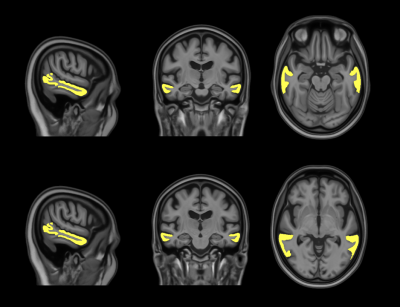 |
Computer Number: 119
3775. Brain
arteriolosclerosis is linked to lower in-vivo cortical volume in
community-based older adults.
A. Tomash, M. T. Yasar, A. R. Ridwan, D. Bennett, J.
Schneider, K. Arfanakis
Illinois Institute of Technology, Chicago, United States
Impact: The finding that brain arteriolosclerosis is
linked to a lower volume of the middle temporal gyrus
deepens our comprehension of the brain abnormalities
associated with this prevalent small vessel disease.
|
|
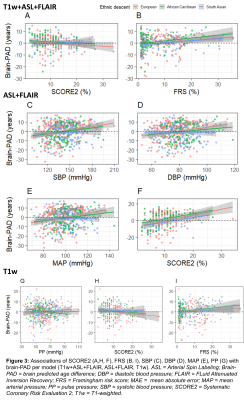 |
Computer Number: 120
3776. Cardiovascular
risk factors are associated with brain ageing
M. Dijsselhof, C. Sudre, S. James, N. Chaturvedi, A. Hughes,
H. Jäger, M. Sokolska, D. Atkinson, L. Smith, L. Westlye, J.
Cole, F. Barkhof, J. Petr, H. Mutsaerts
Amsterdam University Medical Centers, Amsterdam, Netherlands
Impact: Multi-modal brain age assessments may enable a
better understanding of the effects of ageing-related
pathology, such as CRF, on the brain. This allows future
brain ageing studies to investigate structural and
cerebrovascular components of cognitive decline and cerebral
pathology.
|
|
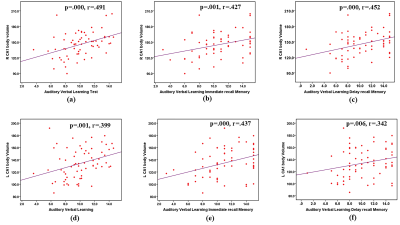 |
Computer Number: 121
3777. Gray
Matter Reduction in Hippocampal Subfields and associated
auditory verbal learning and memory Decline with Ageing
M. Kumar, A. D. Singh, B. P, S. BH, S. khushu, A. Godbole
University of Trans-Disciplinary Health Sciences and Technology (TDU), Bengaluru, India
Impact:
Decreased hippocampus subfield volume maybe associated with deficits Auditory Verbal Learning (AVL); AVL-Immediate and Delay Recall Memory. |
|
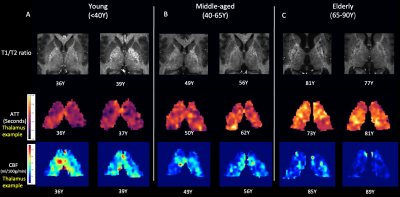 |
Computer Number: 122
3778. Age-related
variations in T1/T2 ratios and perfusion in the deep gray matter
nuclei: An MRI study of healthy individuals
M. Zhang, C. Wang, Z. Sun, C. Li, J. Zhang, Y. Ge
Bernard and Irene Schwartz Center for Biomedical Imaging, Department of Radiology, New York University Grossman School of Medicine, New York, United States
Impact: Using a large cohort dataset, our study revealed
the changes of signal intensity and cerebral perfusion
during aging, which may enhance the understanding of the
underlying tissue and vascular changes during aging.
|
|
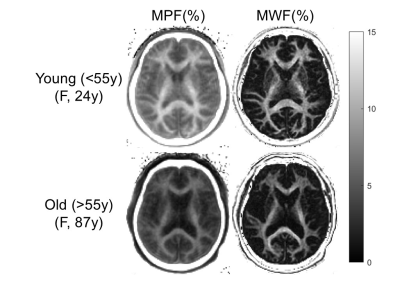 |
Computer Number: 123
3779. Age-related
Changes in Myelin and Myelin Water Quantified With Short-TR
Adiabatic Inversion-Recovery (STAIR) Sequences
J. Lo, J. Wang, G. Nemeh, D. Tran, S. H. Shin, J. Athertya,
Y. Ma, J. Du
University of California San Diego, La Jolla, United States
Impact: Negative correlations with age were demonstrated
for two myelin imaging biomarkers, MPF and MWF, which may
help understand the mechanism of these myelin imaging
biomarkers for assessing normal aging and
neuroinflammatory/neurodegenerative diseases.
|
|
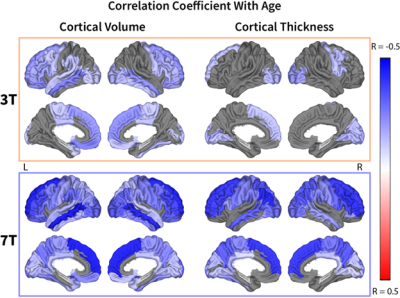 |
Computer Number: 124
3780. Brain
morphometrics correlations with age among 352 subjects imaged
with both 3T and 7T MRI: 7T improves statistical power
C. Chu, T. Santini, J. J. Liou, A. Cohen, P. Maki, A.
Marsland, R. Thurston, P. Gianaros, T. Ibrahim
University of Pittsburgh, Pittsburgh, United States
Impact: With the same acquisition time, scanning at 7T
would require less subjects to reach the same statistical
power, allowing studies to acquire additional sequences and
save costs. 7T could be advantageous when investigating
brain regions that require large sample size.
|
|
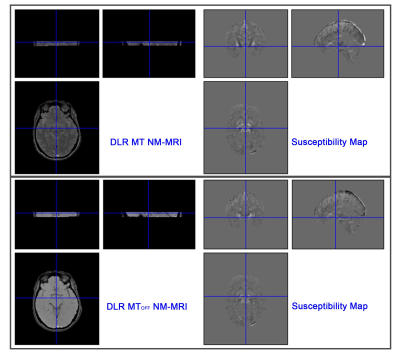 |
Computer Number: 125
3781. Effect
of age on substantia nigra subregions using
Neuromelanin-sensitive-MRI overlapping on a 3D T2*-weighted
contrast image
C. Kuang, W. Liu, L. Li, C. Liu, Y. Zha
Renmin Hosiptal of Wuhan University, Wuhan, China
Impact: Age exerts an effect on the NM-MRI measures and
iron concentration in the SN subregions, which implies that
the regions of SN need to be subdivided and the effect of
age should be taken into consideration in diseases
researches.
|
|
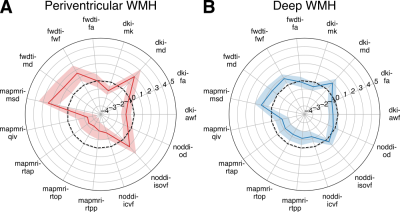 |
Computer Number: 126
3782. Characterizing
Periventricular and Deep WMH in Aging Using Advanced Diffusion
MRI for Tract-Based Insights
K. Chang, L. Burke, N. LaPiana, B. Howlett, D. Hunt, M.
Dezelar, J. Andre, P. Curl, J. Ralston, A. Rokem, C. Mac
Donald
University of Washington, Seattle, United States
Impact: This
study differentiates periventricular and deep WMH using
advanced diffusion MRI, allowing more precise
characterization and localization of WMH subtypes beyond
visual inspection. This work could inform future research on
tract-specific WMH-related cognitive impairments in aging.
|
|
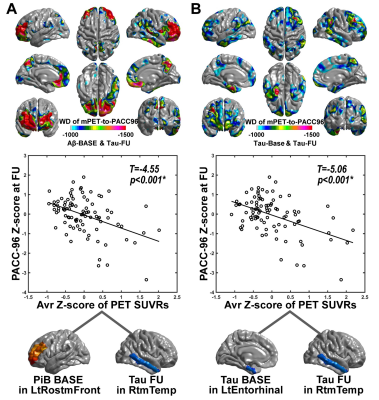 |
Computer Number: 127
3783. Spatiotemporal
Correlation between Amyloid and Tau Accumulations Underlies
Cognitive Changes in Aging
C-M Kim, I. Diez, E. Bueicheku, V. Montal, J. Sepulcre
Massachusetts General Hospital, Boston, United States
Impact: Our findings support using graph theory-based
spatiotemporal analysis between Aβ and tau accumulations as
an imaging marker for preclinical AD and have implications
to understand the complex role of Aβ–tau interactions on
cognitive decline prior to development of AD.
|
|
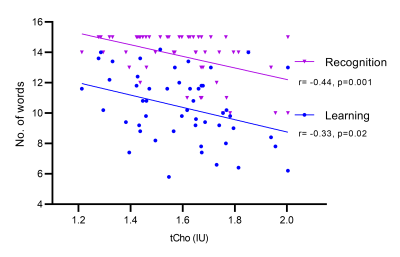 |
Computer Number: 128
3784. Effect
of Ayurvedic formulation on metabolic profile of posterior
cingulate cortex in ageing population
A. D. Singh, M. Kumar, B. P, S. BH, S. Khushu, A. Godbole
University of Trans-Disciplinary Health Sciences and Technology, Bengalore, India
Impact: The study highlights age-related metabolic
changes in the posterior cingulate cortex, revealing
increased choline, myo-inositol, and creatine levels in the
elderly. Importantly, Brahmi Ghrita shows potential in
reversing these changes, suggesting a therapeutic avenue for
cognitive health.
|
The International Society for Magnetic Resonance in Medicine is accredited by the Accreditation Council for Continuing Medical Education to provide continuing medical education for physicians.